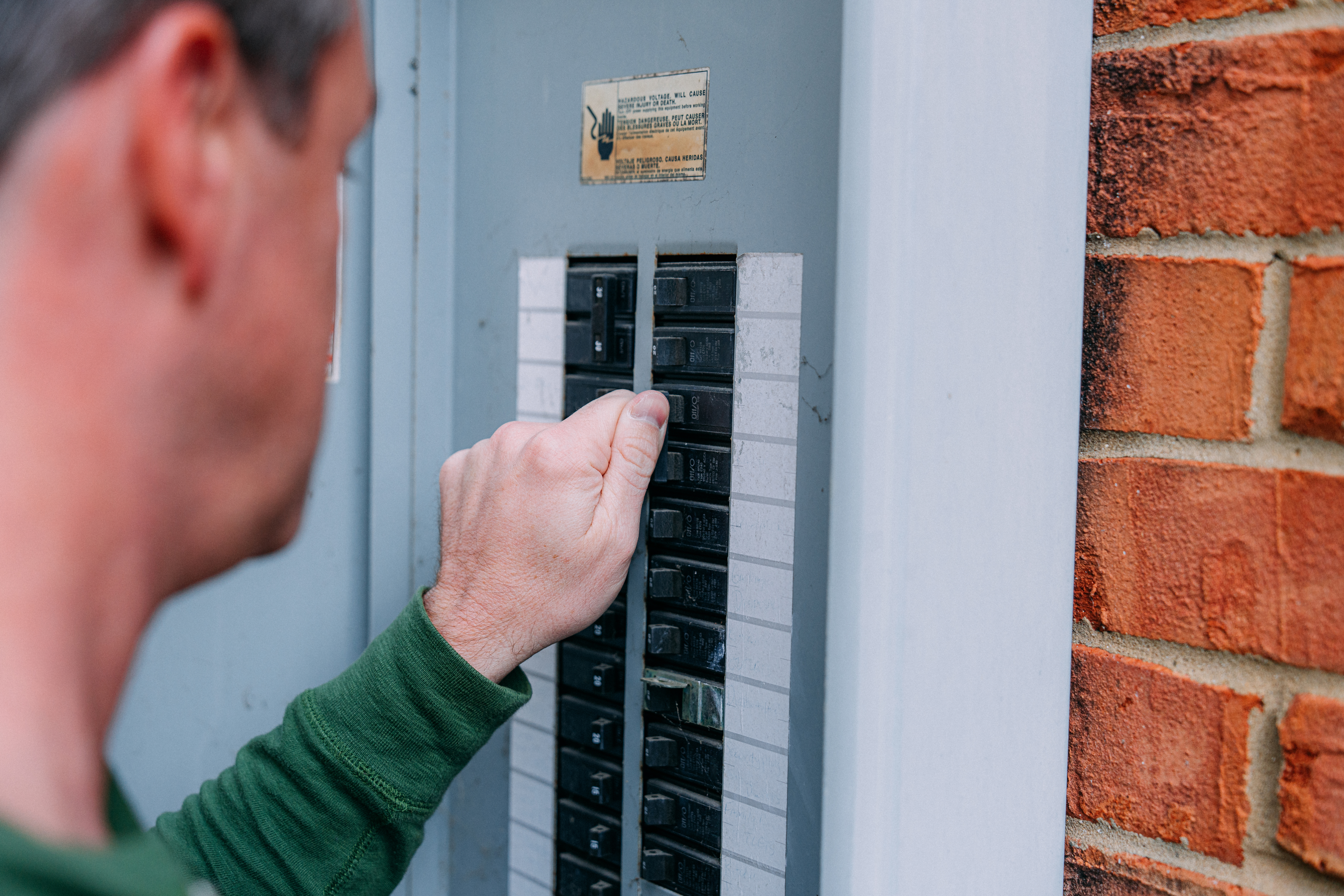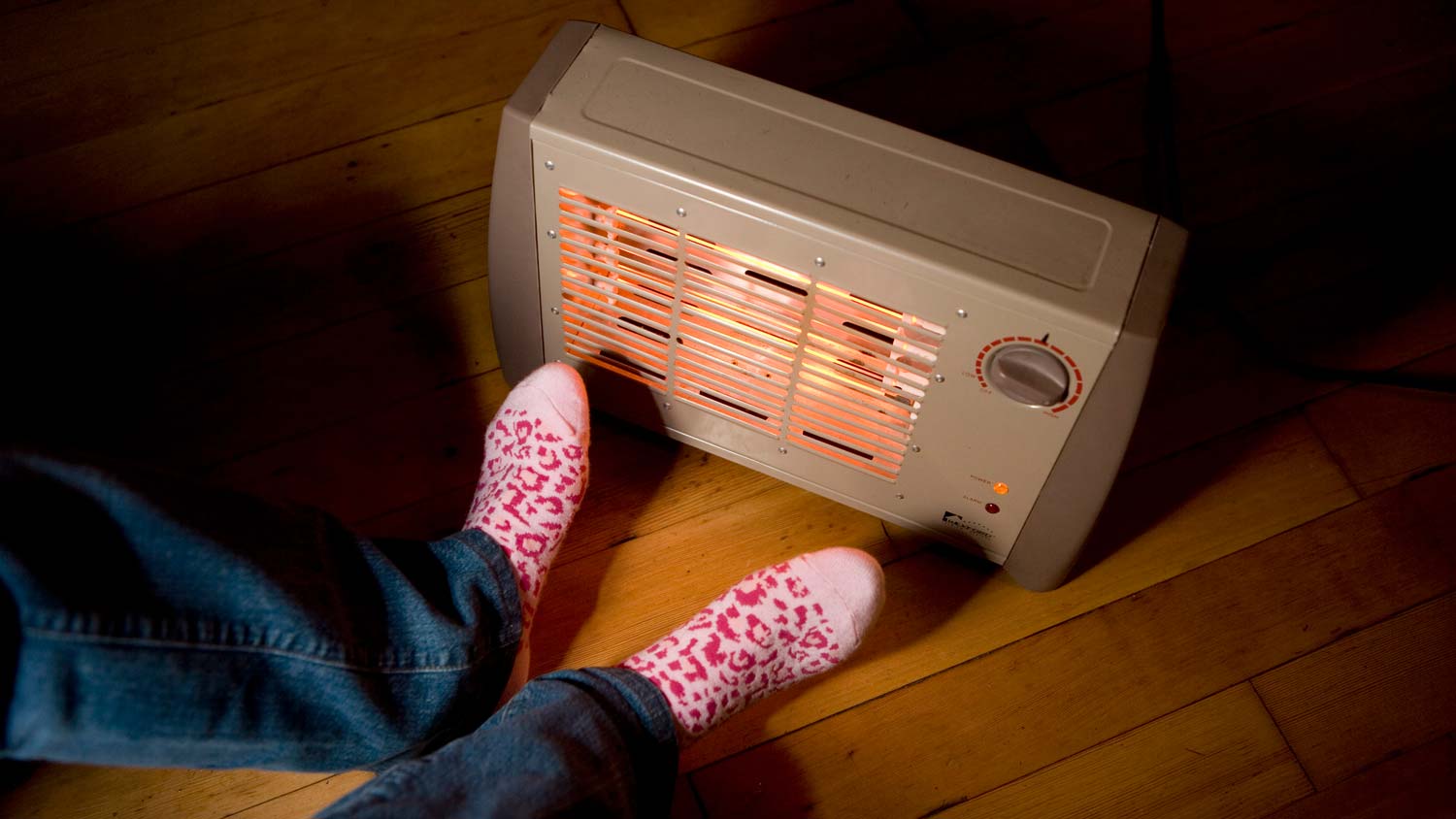
How much does electrical box replacement cost in Columbus, Ohio? Learn why this city may be more affordable and what factors the price.
Calculate the cost of coziness


A typical space heater operates at around 1,500 watts and draws approximately 12.5 amps of electricity when connected to a 120-volt outlet.
You can calculate the cost of running your space heater by multiplying the kWh usage by your utility's charge per kWh.
Optimize space heater efficiency by selecting an appropriate size, utilizing timers, and sealing doors and windows.
Space heaters are convenient for keeping cozy during colder months without having to crank up the heat throughout your whole home. But do space heaters use a lot of electricity?
They’re often promoted as cost-effective alternatives for reducing heating bills, and while this may be true, it’s essential to consider the potential impact on your electrical expenses. Here’s what to know about a space heater’s energy consumption.
A space heater’s energy consumption varies based on the heater’s wattage. A typical space heater usually operates at an average of 1,500 watts and draws approximately 12.5 amps of electricity when connected to a 120-volt outlet. This calculation is based on the relationship between watts vs. volts, which is represented by this formula:
Watts = Amps x Voltage
12.5 amps multiplied by 120 volts equals 1,500 Watts

So, how do these numbers translate to your energy bill? Utility companies charge based on power consumed, which is measured in kilowatt-hours (kWh). To estimate your space heater’s actual power consumed in kWh, here’s what to do:
Multiply the heater’s wattage rating by the number of hours used per day.
Divide the result by 1,000 to convert it to kWh.
For example, if you use your 1,500-watt space heater for six hours a day, your equation would look like this: 1,500 Watts x 6 hours per day/ 1,000 = 9 kWh.
Since utility company charges vary, the best way to estimate your space heater’s operating costs is to note your energy costs per kWh on your energy bill. Continuing with the above example, if your utility company charges $0.12 per kWh, you could calculate your space heater’s operating cost as 9 kWh x $0.12 = $1.08 per day.
To get the most from your space heater and minimize your operating costs, be sure to select the appropriate size of heater. A heater that's too powerful for the room may consume excess energy, while an undersized heater won't effectively warm the space. If your heater has a timer, take advantage of this feature and set it to operate as needed. Keep your doors and windows closed to help insulate the room and hold the heat in, even after the heater shuts off.
Last but certainly not least, do not leave your space heater running unattended—not only does it add up to unnecessary expenses, but there won't be anyone to notice and put out an electrical fire, in the rare case that one occurs. While you’ll likely be able to smell an electrical fire from the other room, it’s always best to be in the immediate vicinity so you can respond right away.
While you won’t need professional help to install a portable space heater, consider hiring a local electrician to install and perform repairs on built-in heaters like baseboard heaters for best results.
From average costs to expert advice, get all the answers you need to get your job done.

How much does electrical box replacement cost in Columbus, Ohio? Learn why this city may be more affordable and what factors the price.

How much does adding an electrical outlet cost in Columbus? Get details on average pricing, permit needs, and what affects the total cost.

How much does rewire house cost in Columbus? Learn the major factors that impact the price and how it can help increase your home's value.

If your plugs are sliding out halfway after you insert them into the outlet, this is a fire hazard. Learn how to fix loose outlets in your home.

Wondering how to tell if a circuit breaker is bad? There are several warning signs you should know to help keep your family, home, and electronics safe from shortages and fires. Keep reading to learn the signs to watch out for with circuit breakers.

The electrical panel delivers all your electricity needs, but it might ruin your aesthetic. Here are the electrical panel location rules so you can choose the best spot.